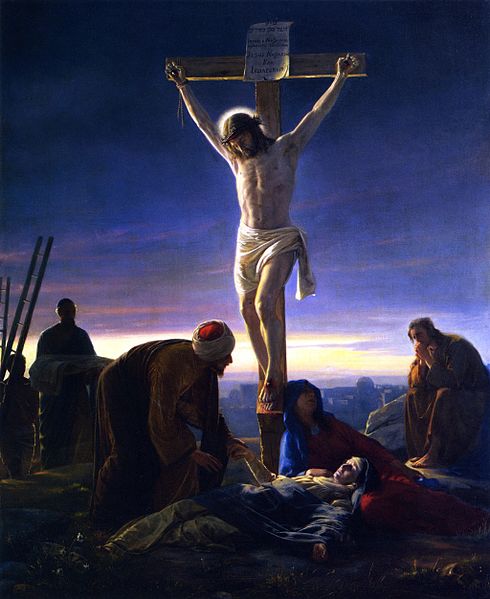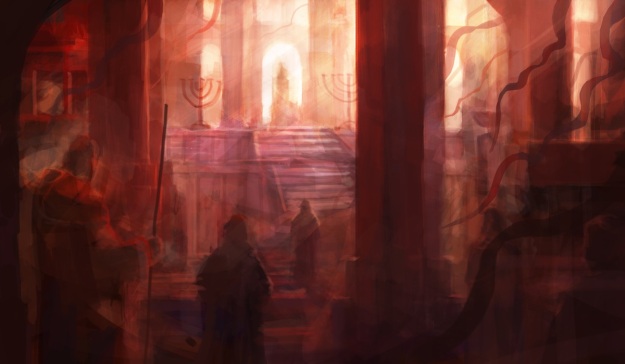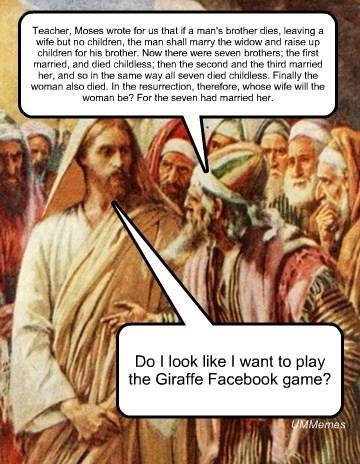Jeremiah 19
Thus said the LORD: Go and buy a potter’s earthenware jug. Take with you some of the elders of the people and some of the senior priests, 2 and go out to the valley of the son of Hinnom at the entry of the Potsherd Gate, and proclaim there the words that I tell you. 3 You shall say: Hear the word of the LORD, O kings of Judah and inhabitants of Jerusalem. Thus says the LORD of hosts, the God of Israel: I am going to bring such disaster upon this place that the ears of everyone who hears of it will tingle. 4 Because the people have forsaken me, and have profaned this place by making offerings in it to other gods whom neither they nor their ancestors nor the kings of Judah have known; and because they have filled this place with the blood of the innocent, 5 and gone on building the high places of Baal to burn their children in the fire as burnt offerings to Baal, which I did not command or decree, nor did it enter my mind. 6 Therefore the days are surely coming, says the LORD, when this place shall no more be called Topheth, or the valley of the son of Hinnom, but the valley of Slaughter. 7 And in this place I will make void the plans of Judah and Jerusalem, and will make them fall by the sword before their enemies, and by the hand of those who seek their life. I will give their dead bodies for food to the birds of the air and to the wild animals of the earth. 8 And I will make this city a horror, a thing to be hissed at; everyone who passes by it will be horrified and will hiss because of all its disasters. 9 And I will make them eat the flesh of their sons and the flesh of their daughters, and all shall eat the flesh of their neighbors in the siege, and in the distress with which their enemies and those who seek their life afflict them.
10 Then you shall break the jug in the sight of those who go with you, 11 and shall say to them: Thus says the LORD of hosts: So will I break this people and this city, as one breaks a potter’s vessel, so that it can never be mended. In Topheth they shall bury until there is no more room to bury. 12 Thus will I do to this place, says the LORD, and to its inhabitants, making this city like Topheth. 13 And the houses of Jerusalem and the houses of the kings of Judah shall be defiled like the place of Topheth– all the houses upon whose roofs offerings have been made to the whole host of heaven, and libations have been poured out to other gods.
14 When Jeremiah came from Topheth, where the LORD had sent him to prophesy, he stood in the court of the LORD’s house and said to all the people: 15 Thus says the LORD of hosts, the God of Israel: I am now bringing upon this city and upon all its towns all the disaster that I have pronounced against it, because they have stiffened their necks, refusing to hear my words.
What do you do with texts like this, where God’s heart is so broken that God rhetorically lashes out. How do you encounter the Lord who is so caught in God’s own pain over the abandonment of the people of God, how does the prophet react? This is rhetorical overkill and it is challenging to see the God of love present in the midst of cannibalism, horror, disaster, and slaughter. Is God so mad that, to use the language of Jeremiah in this section God is willing to pay back the sacrifices of some sons and daughters with filling Topheth with corpses that lie unburied for the animals to eat? Is this God we find in Jeremiah really what the ancient heretic Marcion would have called the evil demiurge, or is there perhaps something else we need to consider? For myself I believe there is.
In the time of Jeremiah life in Jerusalem has become ordered in such a way, a way that was so counter to the desire of shalom that the city was named for (Jeru-shalom- city of peace) that it is now a place where the Lord feels an outcast. Whether the idolatry was as drastic as the prophet announces is difficult to know, but life was no longer oriented around the Lord-and for the people of God when God’s power of life is absent death comes quickly (to paraphrase Brueggeman in his commentary on Jeremiah). Perhaps this rhetorical overkill is something like the effect of commercials turning up the volume to attempt to get a viewer or listener lulled into complacency to sit up and take notice. I am sure that for many in Jerusalem the thought of Babylon coming, laying siege to the city and taking the people into exile could never happen there. They are Jerusalem, they have a Davidic king, they have the temple, God turned away the Assyrians before: siege, plunder, exile, cannibalism-it can’t happen here.
Yet, one thing that is noticeable is that it never says the prophet delivers this over the top rhetoric, rather he tones it down “all the disaster that I have pronounced” is substituted for 13 verses of horror, and the court of the Lord’s house substitutes for Topheth, but the prophet in a very real way serves as a shock absorber for the message. Either the prophet endures the rhetoric of wrath on behalf of the people or the prophet spares us, the readers from reading the horror once again.
Jeremiah, like all the prophets do not attempt to be systematic theologians, rather they are more like poets and their language while powerful and evocative should not be read as legal treatises on the nature of God. Jeremiah allows us to see into the pain of God, and to endure with the wounded God the loss of a people and God’s struggle with how to deal with the abandonment by God’s people. If you want to find a God of wrath, the material is certainly there in scripture-but as a Lutheran I come from the perspective of a God who is love and so I have to wrestle with the rhetoric of Jeremiah and the woundedness of God. There may not always be easy answers, but like the Psalms this is more the poetic language of emotion rather than the language of logic.





















